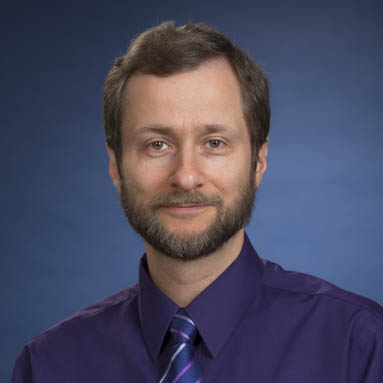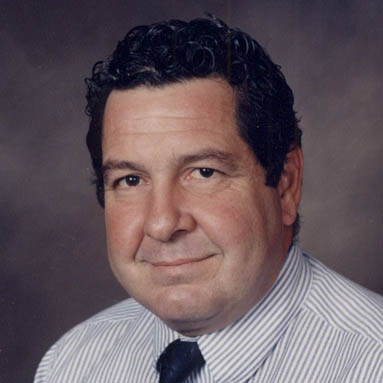Emphasizing rigorous and meaningful research in diverse topics like nanotechnology, biomedical sensors, and clean energy, WPI’s PhD in chemistry prepares students to transition seamlessly to meet real-world challenges.
Here you will find a collaborative culture, focus on hands-on problem solving, and close one-on-one mentorship from world-class faculty that will put you at the center of groundbreaking research on compelling problems in medicine, the environment, and green chemistry.
You’ll also have access to state-of-the-art facilities like our Life Sciences and Bioengineering Center, where modern equipment and instrumentation empowers you to conduct research at the highest levels.

Our flexible and diverse PhD in chemistry curriculum encourages each student to tailor a program of research and study to their individual career goals.
The focus of your program will be on conducting original, immersive research in collaboration with a faculty advisor that prepares you to make meaningful contributions to the advancement of your field.
To complement your research, you will take select courses in Chemistry, Biochemistry, Biotechnology, and other disciplines of your choosing. Depending on your professional interests, you can hone your teaching skills in seminars at WPI’s Morgan Teaching and Learning Center, advance your knowledge in bioprocessing in our newly established Biomanufacturing Education and Training Center, or expand your corporate knowledge through courses in our School of Business.
Innovative research aimed at making a real impact is the cornerstone of WPI’s chemistry PhD. You will work alongside faculty and student researchers who are making advances such as developing new catalysts for green chemistry, designing smart chromophores to interrogate biological systems, and investigating signaling pathways involved in diseases like cancer and diabetes.
Our research focus areas:
- Catalysis
- Computational Chemistry
- Drug Design and Synthesis
- Enzyme Kinetics
- Fluorescence Spectroscopy
- Molecular Modeling
- Optical and Electrochemical Sensors
- Spectroscopy

At WPI, students’ work makes an immediate impact on some of the world’s most pressing challenges.

Students work one-on-one with faculty members to develop a targeted curriculum—so they can combine their interests in science, engineering, and even entrepreneurship.

Whether your interests are in biotech or pharmaceutical fields, or in areas such as energy or rare resources, the opportunities at WPI prepare you for your next steps.

Research at WPI is invigorating, exciting, and innovative.

WPI’s high-tech lab bays are organized by research focus, not departments, and invite multidisciplinary collaboration.

The flexible degree program at WPI means your BCB degree offers a comprehensive plan tailored to your professional and personal goals.
WPI’s Chemistry and Biochemistry Department is located in the Life Sciences and Bioengineering Center at Gateway Park, a research complex designed to promote high-level interdisciplinary research. Here, you will work side by side with faculty, student, and industry researchers across multiple disciplines and have access to modern instrumentation, including state-of-the-art equipment for microscopy, facilities supporting cell culture work, and a 3,500-square-foot vivarium.
Have questions?
WPI's dedicated graduate student support team can help.
Refer a Friend
Do you have a friend, colleague, or family member who might be interested in a WPI graduate program? Click below to tell them about our programs.
Faculty Profiles



Change the Way We Live with a PhD in Biochemistry
Do you have a passion for changing how people live and the reaction of living things? Consider earning a PhD in biochemistry which dives into advances that make an impact on society, human health, and the environment we live in. You’ll have the ability to work with expert faculty members to solve complex health and science problems in today’s society. From bioprocessing to metal transport and chemistry fundamentals, you can tailor your studies to what interests you most. Do you have more of an interest in how the human body works? Check out our PhD in biomedical engineering which dives into boundary-pushing research to help people live longer lives.
Don’t Have Your Master’s Yet? Explore Our Chemistry-Related MS Programs.
Maybe you need to earn a master’s degree before you can elevate your chemistry career? Our master’s in chemistry is offered part- or full-time, thesis or non-thesis so you can earn your degree at your own convenience. You have the flexibility to choose the classes that fit your individual interests and career focus. Do you have a passion for the chemistry field, but medicinal plant studies in particular? Our online master’s in medicinal plant chemistry covers modern techniques in product isolation, plant-based medical compounds, and leadership skills in life science. Are you particularly interested in the chemical processes that occur in living things? Explore a master’s in biochemistry where you’ll dive into research in topics like homeostasis of plants and bacteria, enzyme structure, heavy metal transport, and more.
Just Starting Your Chemistry Career? Earn a Bachelor’s.
Maybe you’re just starting your college career and need to earn a bachelor’s first. Immerse yourself in hands-on lab work and make exciting discoveries with a bachelor’s in chemistry. You’ll gain hands-on knowledge in organic, inorganic, experimental, and physical chemistry and the expertise to use scientific tools. Do you have a passion for biology and the study of living organisms? Our bachelor’s in biochemistry may be a good fit for you. Combine chemistry and biology as you immerse in hands-on lab experience to unveil the complicated chemical processes of living things. Not sure if you want to major in chemistry or biochemistry but still have an interest in the fields? We offer minors in both areas, providing you the basic laboratory skills and knowledge needed to understand and apply chemistry to your career. Explore our minor in chemistry which introduces students to topics in molecularity, organic chemistry, chemical thermodynamics, and more. If you’re particularly interested in how cells respond in living things, consider a minor in biochemistry, perfect for students pursuing life sciences product development, marketing, and more.
The BioPoint Program for Graduate Students has been designed to complement traditional training in bioscience, digital and engineering fields. Students accepted into one of the home BioPoint programs will have the flexibility to select research advisors and take electives in other departments to broaden their skills. BioPoint curriculum is designed to be individual, interactive, project-focused and diverse, and includes innovative courses, seminars, journal clubs and industrial-based projects. Learn more.